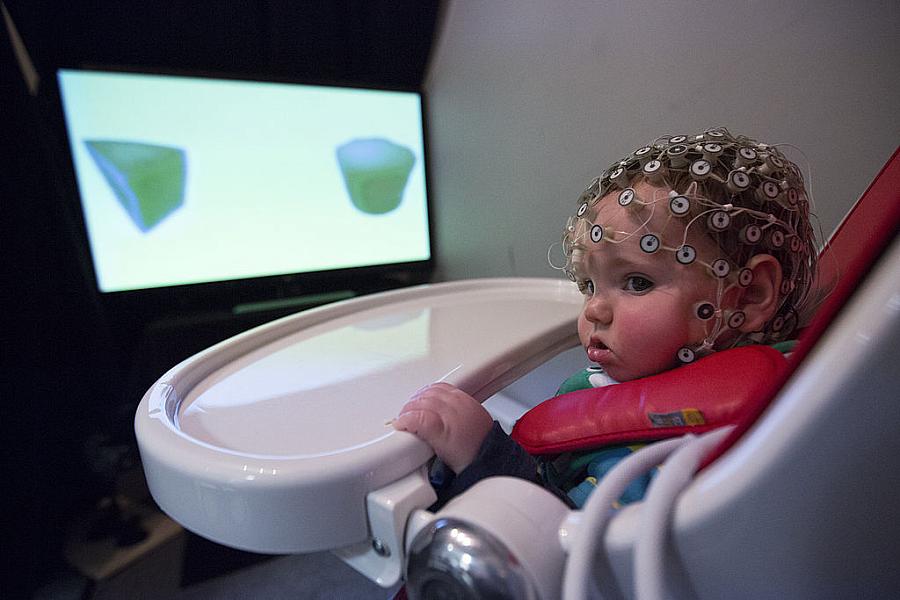Could Giving Families Cash Help Children’s Brain Development?

Photo credit: Oli Scarff / Getty Images
It’s well known that kids who grow up in poverty are more likely to have worse outcomes in school, in health and in life. But researchers have wondered if correlation or causation is the true reason. Now, a new study may be the first to untangle the strings of community, family and poverty.
Led by a team including economist Greg Duncan and neuroscientist Kim Noble, the randomized control trial will give some parents $333 per month for the first 40 months of their children’s lives. Others will receive $20 per month. The team plans to recruit 1,000 mothers of infants from four diverse communities – New York City, Minneapolis, Omaha and New Orleans.
Ultimately, they want to know whether unconditional cash payments have a causal effect on the cognitive, socioemotional and brain development of infants and toddlers in low-income U.S. families.
They’ll follow the kids for five years collecting data through interviews with the mothers at 12 and 24 months. After the children turn three, they will visit the participating labs where researchers will test their language, memory, executive functioning, and social and emotional development. They’ll also measure the development of their brain circuitry through electroencephalography (EEG) to look at the structural development of the brain.
Noble, a researcher at Columbia University, has found in previous studies that the brains of kids with higher family income and more parental education had larger surface areas than their poorer, less-educated peers. And importantly, the strongest evidence of difference came in brain regions associated with language and executive functioning, Noble told a group of reporters at a child development meeting in February.
So far, the team has raised much of the $16 million they’ll need to launch the project, which they hope to start in 2018.
Duncan, from the University of California at Irvine, points out that while large-scale poverty reduction studies have happened in the past, they were never focused on children’s outcomes. “There hasn’t been any study of income benefits on the first few years of life,” he says. Economists tend to find correlations, not causation, between poor kids and outcomes. “Some say it’s income [that drives outcomes], while others point to family structure or neighborhood conditions.”
Since some of the families in the study will receive a tiny stipend while others receive a larger one, the researchers hope to be able to examine the influence of income while holding the other variables the same.
Other studies have hinted at better outcomes for babies when families have more cash. A 2016 study in the journal Pediatrics showed that low-income families who received a small supplement ($81 Canadian per month) during pregnancy were less likely to have babies with low birth weights and preterm births.
This new study will give researchers the opportunity to tease apart the variables that contribute to healthy outcomes. Studies into the idea of basic income – a system of wealth distribution in which people receive a salary just for existing – are coming to the forefront this year. Already, a study in Finland has found that having basic income lowers stress levels although the findings are preliminary, and there are still many questions to be addressed.
Duncan is quick to point out that the motivation for basic income is rather different than his project. Basic income is about the future of work: when technology absorbs many different types of jobs, humans will have to get income from somewhere. But these conversations often fail to examine what adding or subtracting resources does to kids -- which is what his study will do. After all, nearly 1 in 5 children in the U.S. live below the federal poverty line.
“In this experiment, we are trying to provide definitive evidence on the role of income is on the development of infants and toddlers,” says Duncan. “One hopes that strong evidence will influence the policy debate. We really do want to have the debates about what our safety net should look like include conversations on how parents are going to react in terms of wellbeing, but also whether kids are going to profit or not.”

